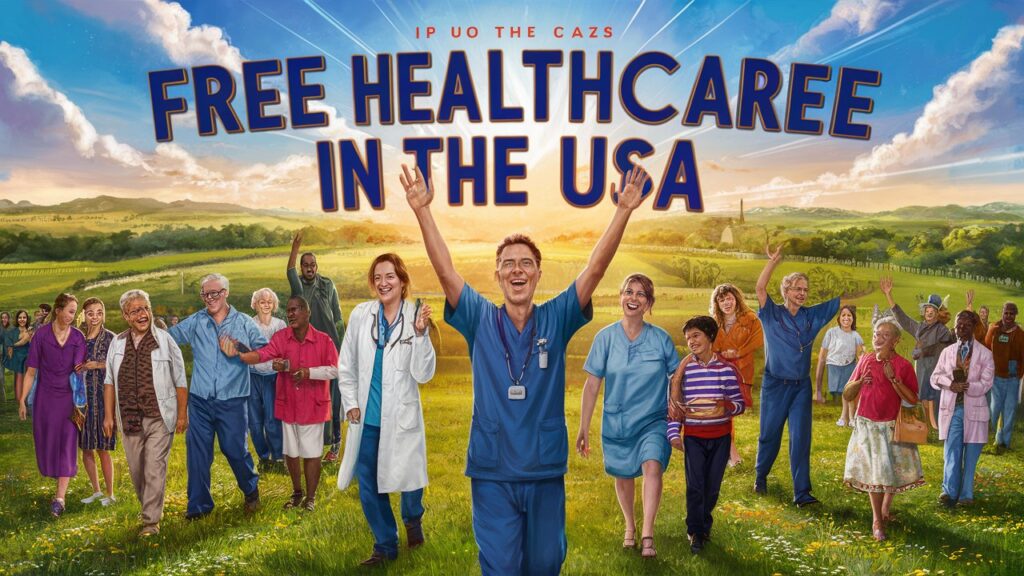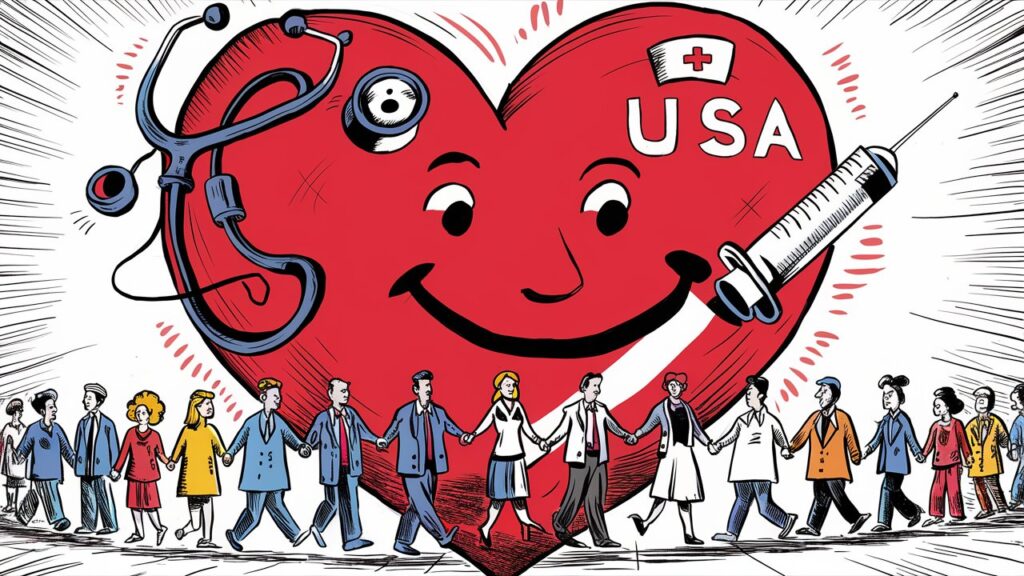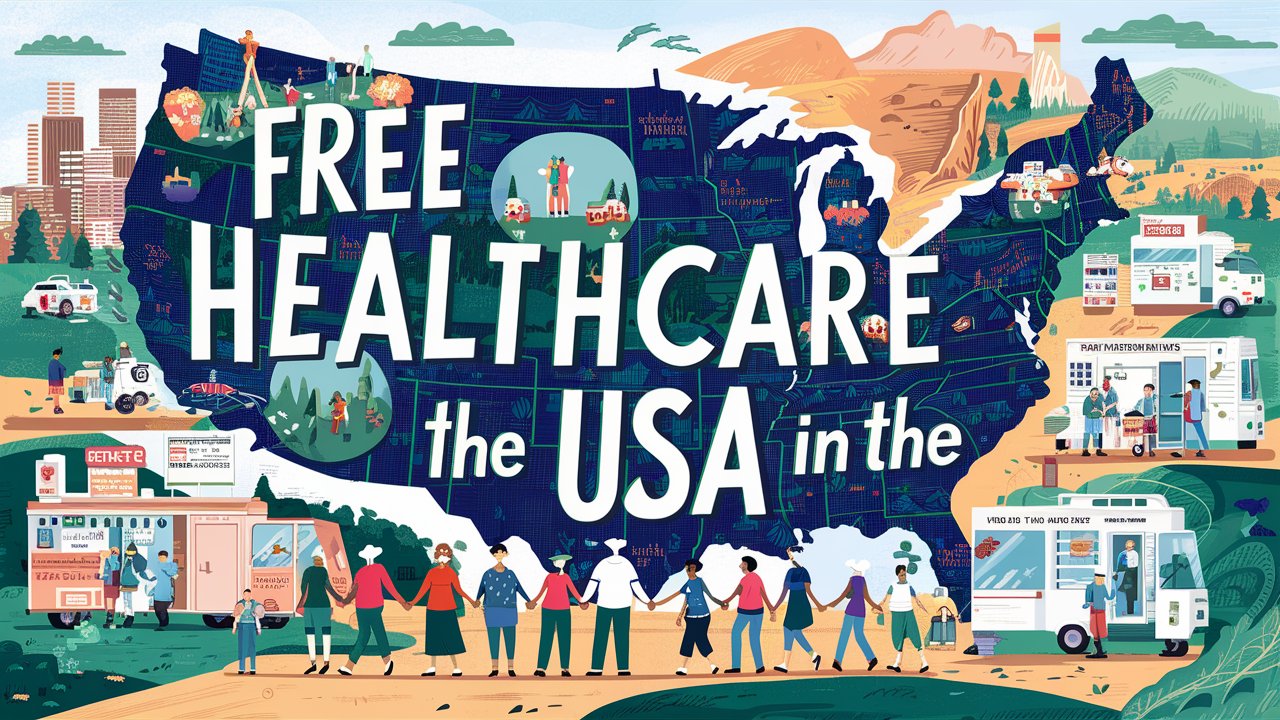The idea of free healthcare in the USA has been a topic of heated debate for decades. With rising healthcare costs and increasing numbers of uninsured citizens, the question remains: is free healthcare a feasible solution for the United States? This comprehensive analysis will delve into the current state of healthcare in the USA, the potential benefits and challenges of a free healthcare system, and comparisons with countries that have successfully implemented such systems. We will also discuss the economic, social, and political implications, supported by data and research, and provide actionable insights for policymakers, healthcare professionals, and the general public.

The Current State of Healthcare in the USA
As of 2023, the United States has a complex and often criticized healthcare system. Despite being one of the wealthiest nations, the USA spends more on healthcare per capita than any other country, yet it ranks poorly in terms of health outcomes. According to the Commonwealth Fund, the U.S. healthcare system is ranked last among 11 high-income countries. High costs, administrative inefficiencies, and unequal access contribute to these dismal rankings.
Benefits of a Free Healthcare System
Implementing a free healthcare system in the USA could offer numerous benefits:
Improved Access to Care
Free healthcare would ensure that all citizens, regardless of income, have access to essential medical services. This could reduce the number of untreated illnesses and improve overall public health.
Cost Savings
While the initial transition may be expensive, long-term savings could be substantial. For instance, preventive care can reduce the need for costly emergency interventions, and streamlined administration could cut down on bureaucratic expenses.
Economic Productivity
Healthy citizens are more productive. By reducing the financial burden of healthcare on individuals and families, a free healthcare system could enhance the economic productivity of the nation.

Challenges of Implementing Free Healthcare
Despite its potential benefits, a free healthcare system also poses significant challenges:
High Initial Costs
The transition to a free healthcare system would require substantial upfront investment. Funding sources would need to be identified, possibly through higher taxes or reallocation of existing resources.
Political Resistance
Healthcare reform is a highly politicized issue in the USA. Achieving consensus among lawmakers, stakeholders, and the public would be difficult but essential for successful implementation.
Quality of Care
Critics argue that free healthcare could lead to longer wait times and reduced quality of care. Ensuring that the system remains efficient and effective would be a primary concern.
Comparisons with Other Countries
Several countries have successfully implemented free healthcare systems, providing valuable case studies for the USA:
Canada
Canada’s single-payer healthcare system offers universal coverage funded by taxes. While it faces criticism for wait times, it consistently ranks higher in health outcomes compared to the USA.
United Kingdom
The UK’s National Health Service (NHS) provides free healthcare at the point of use. Funded through taxation, the NHS is renowned for its comprehensive and accessible services.
Economic, Social, and Political Implications
The transition to a free healthcare system would have wide-ranging implications:
Economic Impact
Small businesses could benefit from reduced healthcare costs, allowing them to invest more in growth and employee wages. However, higher taxes could offset some of these benefits.
Social Impact
Marginalized communities would gain improved access to healthcare, potentially reducing disparities in health outcomes and fostering greater social equity.
Political Implications
Healthcare reform could become a central issue in elections, influencing voter behavior and party platforms. Bipartisan cooperation would be crucial for successful implementation.
Actionable Insights and Suggestions
For those advocating for free healthcare, consider the following steps:
Policymakers
Conduct comprehensive feasibility studies and pilot programs to assess the impact of free healthcare on a smaller scale before nationwide implementation.
Healthcare Professionals
Engage in public discussions and provide expert opinions to inform and educate the public about the benefits and challenges of free healthcare.
The General Public
Stay informed and participate in advocacy efforts. Support organizations and candidates that prioritize healthcare reform.
Conclusion
Implementing free healthcare in the USA is a complex but potentially transformative endeavor. By understanding the current state of healthcare, the benefits and challenges of a free system, and learning from other countries, we can engage in informed discussions and advocacy. With careful planning and cooperation, a free healthcare system could significantly improve the health and well-being of all Americans.
Read More: California COVID-19 Surge: Impact on Local Businesses and Economic Strategies












2 thoughts on “Feasibility and Impact of Implementing Free Healthcare in the USA”